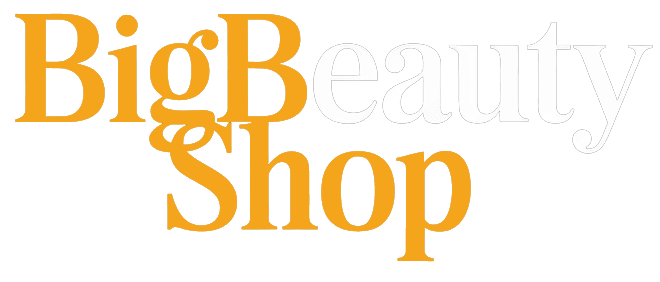The Best Nightly Skincare Routine, According to Experts

Ahead, experts weigh in on the essential steps to follow—and the products and ingredients to look out for when building your best nightly skincare routine yet.
Start by Removing Makeup and SPF
“If you wore makeup or sunscreen, double cleansing is key. This method ensures all residue is removed, preventing clogged pores and irritation,” Dr. Spizuoco tells Vogue. Celebrity esthetician Kristin Gunn agrees, adding that you should also consider double cleansing if you’ve spent time in a polluted environment (say, your daily commute in a city like New York), explaining that oil cleansers break down heavy ingredients in a way that standard face wash can’t do on its own. Step one of a double cleansing routine starts with an oil-based cleanser (choose between liquids or balms) or micellar water to dissolve makeup, SPF, excess oil, and pollutants.
Follow Up With a Gentle Cleanser
Next comes a gentle face wash that clears skin without stripping it of its natural oils. “If you didn’t wear makeup or SPF, a single cleanse with a gentle cleanser is usually enough,” says Dr. Spizuoco. However, Gunn stresses that regardless of whether you’re sticking to a single or double cleansing method, the remainder of your nighttime routine should stay consistent to ensure effective results. With your face now a fresh canvas, consider it primed for the layers of products to come.
Exfoliation
“This is an important step for everyone, but if you are over 35, exfoliation is crucial for promoting cellular turnover,” Gunn tells Vogue. “Use a chemical exfoliant like an AHA or BHA to melt away any dead skin cells that naturally pile up, and clean the slate to kickstart skin cell turnover.” She recommends incorporating an exfoliant into your routine two to three times per week and ensuring you never exfoliate the same night you use retinol—otherwise, you’ll dry out your skin. Pads and liquid serums work both great here.
Toners
Do you really need a toner? Some might argue that you could do without it, but for Gunn, it’s a resounding yes. “Toners balance the pH of your skin and prepare it for the absorption of the products that come next in your routine,” she explains. From hydrating milky toners to balancing lightweight essences, toners patted directly into the skin or swiped on with a cotton pad can help replenish freshly cleansed and exfoliated skin.
Targeted Treatments
As the name implies, these should be specific to your particular skin-care concerns. Gunn explains that common targeted treatments include retinol for anti-aging, niacinamide for redness and brightening, and BHAs for acne care. When introducing retinol to your routine, the pros suggest starting by applying it two times a week, gradually increasing frequency as your skin adapts, and never using it in tandem with exfoliation. Brezavscek agrees, adding that another popular option is serums with growth factors, which stimulate collagen production and enhance skin renewal; her favorite medical-grade growth factor serum is Neocutis Bio Serum Firm.
Lock in Hydration with Serums
While active ingredients like retinol and exfoliants need to be cycled to avoid overuse, you can never overdo it with a hydrating serum—in fact, the more, the better! “Hydration and barrier support are key to lock in moisture and prevent overnight dehydration,” Brezavscek explains.
Eye Creams for Under Eye TLC
While social media might have you convinced that eye creams are no different than your average moisturizer, the pros beg to differ. “Eye creams target concerns like puffiness, dark circles, crepey skin or fine lines,” says Gunn. Brezavscek agrees, adding that high-performance eye creams often have a thicker consistency, for added hydration to the delicate under-eye area.
Nourishing Face Oils
Face oils are like the beautiful drizzle surrounding an exquisite meal—not needed all the time, but a welcome touch. “Facial oils can be used when required and are easy to incorporate into most skin-care routines,” Dr. Rabia Malik, founder of skincare brand Skin W1, previously told Vogue. “In general, face oil should be applied as the last step in a skincare routine (after serum and/or moisturizer if they are being used).” While face oils are safe for daily use, Dr. Malik advises not to let your skin become overly reliant on them.
Finish Off With a Moisturizer
No nighttime skincare routine is complete with a nourishing moisturizer—it’s the finishing touch, and an essential final step to lock in all the previously-applied products. “Hydrating and treating the skin overnight helps reduce fine lines, wrinkles, and dullness by maintaining moisture levels and boosting collagen production,” explains Gunn.
An Added Bonus: Face Masks
“For those who want to elevate their routine, hydration boosters can maximize results,” says Brezavscek, adding that eye masks, overnight masks, and face masks are an optional bonus to any nightly skincare regimen.
Occasional High Tech Gadgets
While strides in beauty tech have allowed once a upon time, in-office-only treatments to make their way from the dermatologist’s office into our homes, there’s still something to be said about choosing—and using—a device that’s right for you. From LED light therapy masks and wands to facial massagers and microcurrent toning devices, each one serves a particular purpose. Read up on some of the buzzy tools we’ve tested and why we recommend it, including the Currentbody LED Light Therapy Mask, the Solawave wand, the Nuface Trinity+, and the TheraFace Pro facial massager.






:max_bytes(150000):strip_icc()/RS-best-skincare-routine-for-40s-c353dbdfb9894a92b8baf803128bbe1b.jpg?w=1300&resize=1300,800&ssl=1)





